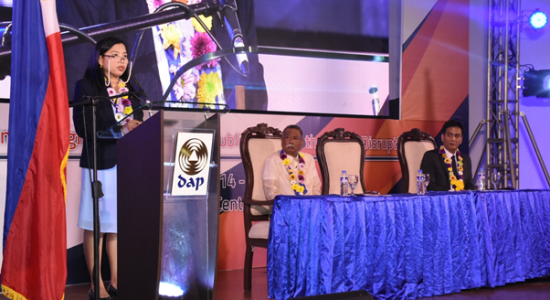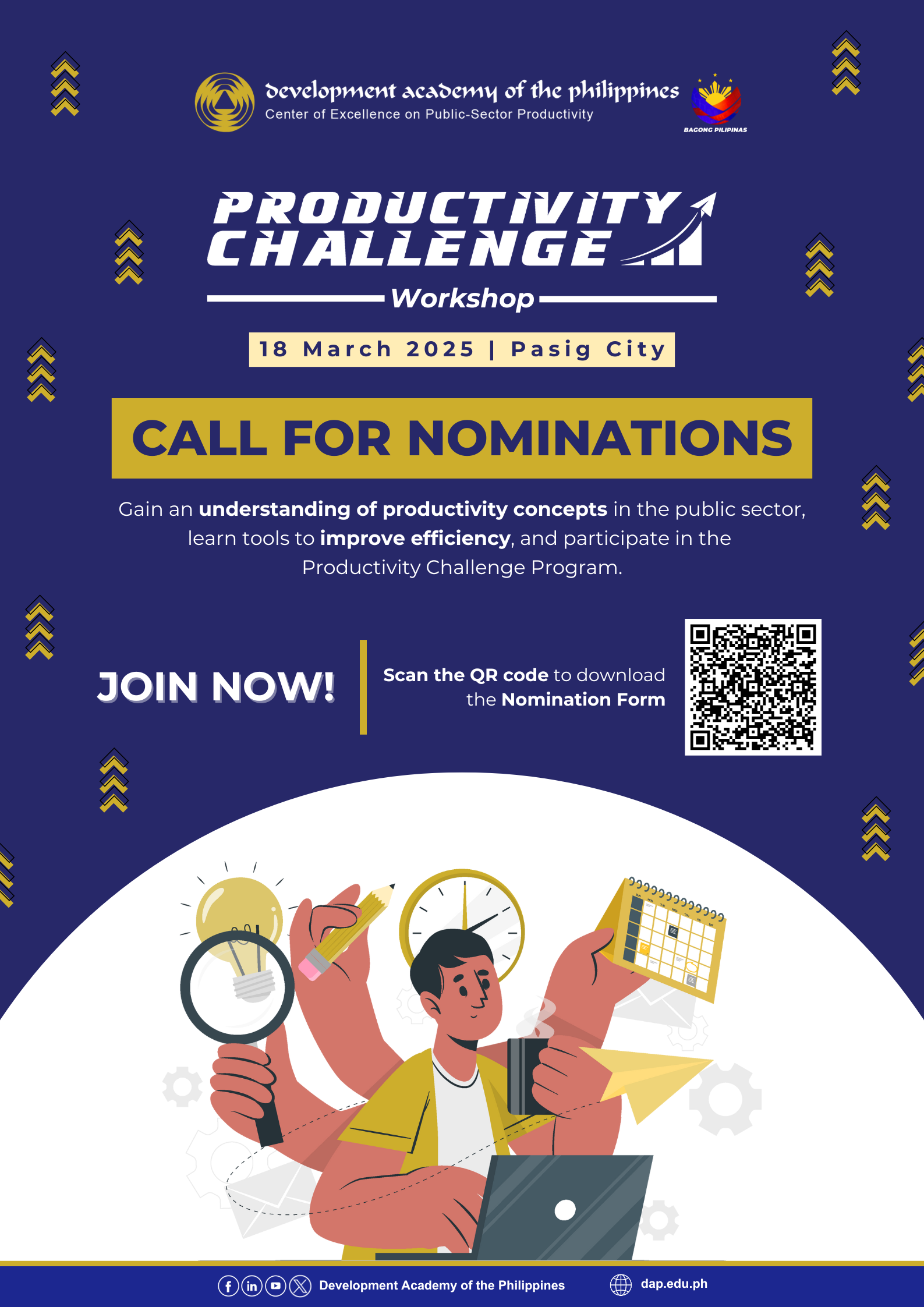
National Economic and Development Authority Undersecretary for Regional Operations and APO Director for the Philippines Adoracion Navarro delivers her keynote message during the opening ceremony of the Third International Conference on Public Sector Productivity last November 14 at the DAP Conference Center in Pasig City. On the Presidential table are (from left to right) APO Secretary-General Achmad Kurnia Prawira Mochtan and DAP President and CEO Engelbert Caronan, Jr. (Photo by Ped Garcia)
The Asian Productivity Organization (APO) and the Development Academy of the Philippines (DAP) gathered some 162 foreign and local delegates from APO member-economies for the Third International Conference on Public Sector Productivity (ICPSP 2019) at the DAP Conference Center in Tagaytay City on November 14-15, 2019.
This year’s conference focused on the theme, “Building an Agile and Innovative Public Sector in the Age of Disruption,” as it featured technologies and approaches for the public sector to better address and respond to changes brought about by disruptions. It also showcased technologies and innovations to enable the public sector and leaders to be agile and adaptive in delivering better public value as well as discussed the challenges of the public sector to become more agile and innovative in a disruptive environment.
National Economic and Development Authority Undersecretary for Regional Operations and APO Director for the Philippines Adoracion Navarro, in her keynote address, underscored that the public sector should be ready to adapt to change as the public seeks for faster government transactions. Being agile, she said, is crucial to the bureaucracy’s ability to respond to the fourth industrial revolution. “It has been observed that public sector organizations that are resistant to deviating from established practices slowly become unsuccessful, irrelevant, and ineffective in their public service delivery,” she added.
DAP President and Chief Executive Officer Engelbert C. Caronan, Jr., in his welcome remarks, recalled a point he made in the previous ICPSP about the inability of the Philippine bureaucracy to act on certain disruptive technologies. He said that it will be a recurrent problem if it remains unaddressed. The challenge, he said, is how to organize a rules-based bureaucracy to respond to these disruptions. However, he said that an even bigger challenge is the need to shift from productivity to innovation-based perspective. He also stressed that the metrics used for productivity do not necessarily apply to innovation.
Meanwhile, newly elected APO Secretary General Achmad Kurnia Prawira Mochtan, vowed to promote the centrality of productivity in the APO during his term. He said that continuous improvement is not enough and that innovation will boost productivity as expectations now are much higher, thus, demanding better and faster delivery of services. He challenged the delegates to share their experiences to enrich the learning process during the two-day event.
The ICPSP 2019 featured the following foreign experts as resource speakers for the plenary sessions: Dr. M. Jae Moon, professor and director, Institute for Future Government, Yonsei University (South Korea); Dr. Keiji Yamada, senior vice president, NEC Asia and the Pacific (Singapore); Marcus Barber, director, Looking Up Feeling Good (Australia); Dr. Patarapong Intarakumnerd, professor, National Graduate Institute for Policy Studies (Japan); Dr. Sean Dougherty, senior advisor, Organisation for Economic Co-operation and Development (France); and Mr. Kabir Ahmad Mohd Jamil, director, Malaysia Productivity Corporation (Malaysia). – Joanne Nuque




